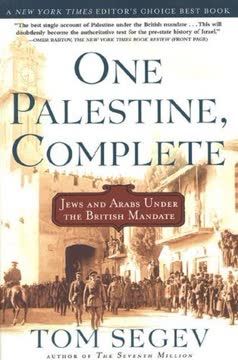Key Takeaways
1. The British Mandate: A Muddled, Self-Serving Endeavor
“Palestine for most of us was an emotion rather than a reality,” one official in the British administration commented.
Emotional entanglement. Britain's involvement in Palestine was driven more by sentiment and perceived historical justice than by clear strategic or economic benefits. This emotional attachment, coupled with conflicting promises to both Arabs and Jews, led to a policy characterized by ambiguity and indecision from the outset. Many officials, like Foreign Secretary Grey, initially ridiculed the idea of a Jewish state but were swayed by a "strong sentimental attraction."
Conflicting interests. The British found themselves caught between two burgeoning national movements, often acting on contradictory orders and unreliable intuitions. High Commissioner Arthur Wauchope famously compared himself to a circus performer trying to ride two horses at once, one too fast, the other too slow. This internal disarray was exacerbated by a bureaucracy rife with opposing forces, leading to a "kaleidoscope of perceptions and positions."
Costly burden. Despite initial assumptions of strategic gain, Palestine proved to be an economic and political liability. Many top army officers argued it contributed nothing to imperial interests, and its financial cost frequently prompted considerations of withdrawal. The British, who initially arrived as liberators, eventually became weary of the "impossible position" they had created, leaving behind a legacy of progress for some, but backwardness and unresolved conflict for others.
2. Zionist Diplomacy: Leveraging Myth and Influence
“The Jewish race,” Lloyd George explained in his memoirs, had worldwide influence and capability, and the Jews had every intention of determining the outcome of the World War—acting, he said, in accordance with their financial instincts.
Strategic persuasion. Chaim Weizmann, a chemist by profession, masterfully cultivated the myth of "world Jewry's" immense power and influence among British leaders. He convinced them that supporting Zionism was not only a moral imperative but also a strategic alliance worth paying for, especially during wartime. This perception, a blend of classical antisemitic preconceptions and romantic veneration, was crucial to securing the Balfour Declaration.
Weizmann's genius. Despite lacking formal power, Weizmann's audacity, discernment, and charisma allowed him unparalleled access to British policymakers, including Winston Churchill and Arthur James Balfour. He presented Zionist and British interests as identical, often employing emotional blackmail and acting as a statesman representing a powerful, yet non-existent, global Jewish entity. His ability to "explain Einstein's Relativity" to Lord Storrs exemplified his persuasive charm.
Concrete achievements. This diplomatic prowess led to significant gains for the Zionist movement:
- The Balfour Declaration (1917)
- The establishment of the Jewish Legion
- The inclusion of the "national home" commitment in the League of Nations Mandate
- The appointment of Herbert Samuel as High Commissioner
- The eventual revocation of the anti-Zionist Passfield White Paper (1930)
These successes, often achieved against internal British opposition, demonstrated the potent impact of Weizmann's strategic manipulation of British perceptions.
3. The Arab Awakening: Fragmented Yet Resilient
“The entire world will see that the Arab nation is not easy prey,” Sakakini declared.
Family rivalries. Arab politics in Palestine was largely urban and characterized by intense family rivalries, particularly between the Husseinis and Nashashibis. This internal fragmentation hindered the formation of a unified national movement comparable to the Zionists', often leading to demagogic use of religious symbols and a focus on clan interests over broader national goals.
Rise of the Mufti. Haj Amin al-Husseini, initially appointed Mufti of Jerusalem by the British, skillfully leveraged the Western Wall controversy and the fear of Zionist expropriation to consolidate his power. He positioned himself as the chief defender of Islamic holy places, transforming religious sentiment into a potent force for Arab nationalism, despite his own reliance on British patronage.
Growing resistance. Despite internal divisions and a lack of centralized leadership, Arab national consciousness steadily grew, fueled by opposition to Jewish immigration and land purchases. This culminated in the widespread Arab Rebellion of 1936-1939, which, though brutally suppressed, demonstrated an unprecedented level of organizational effort and a clear demand for independence, making the British "sick of Palestine."
4. The Illusion of Coexistence: Inevitable Separation
“The land is spacious and its soil is fertile,” he claimed. Sakakini was not persuaded. “You are a star that has gone out,” he told Ivri. “Don’t expect the entire universe, every sun and every moon, to revolve around you.”
Early hopes dashed. Initial British and some Zionist hopes for a single, harmonious "Palestinian nationality" quickly dissolved. Early encounters, like Khalil al-Sakakini's with Benyamin Ivri, revealed fundamental, irreconcilable national aspirations. While Ivri spoke of shared land and Swiss-like multilingualism, Sakakini saw a "star that has gone out," unwilling to be eclipsed by a new nation.
Segregation as policy. The Jaffa riots of 1921 solidified the Zionist conviction that separation was necessary. Tel Aviv's municipal independence from Jaffa formalized this principle, driven by a desire for a European quality of life free from Arab influence. This extended to:
- "Hebrew labor" campaigns, prioritizing Jewish workers over cheaper Arab labor.
- Land acquisition policies aimed at creating contiguous Jewish-owned areas.
- Separate educational and social institutions.
Unbridgeable divide. The Peel Commission (1937) ultimately concluded that the "social, moral and political gaps between the Arab and Jewish communities are already unbridgeable," recommending partition. This official recognition of the impossibility of coexistence, though initially rejected by both sides for different reasons, underscored the deep-seated drive towards national separation that had come to define the Mandate era.
5. Violence as a Catalyst: From Riots to Rebellion
“The furor almost turned into madness,” Sakakini wrote. Everyone was shouting, “The religion of Mohammed was founded by the sword,” and waving sticks and daggers.
Escalating tensions. The Yom Kippur (1928) Western Wall incident, initially a minor dispute over a prayer screen, rapidly escalated into widespread violence. This was not merely a religious clash but a political conflagration, fueled by Arab fears of Zionist takeover and Jewish indignation at perceived British weakness. Khalil al-Sakakini observed the "furor almost turned into madness," reflecting the raw, primal passions ignited.
Bloody outbreaks. The Nebi Musa riots (1920), Jaffa riots (1921), and especially the Hebron massacre (1929) became traumatic, formative events. These outbreaks, often characterized by brutal killings, looting, and rape, shattered any lingering illusions of peaceful coexistence. The Hebron massacre, in particular, saw 67 Jews killed, though many were saved by Arab neighbors, highlighting the complex human element amidst the national conflict.
The Arab Rebellion. The 1936-1939 Arab Revolt, sparked by the killing of Sheikh Iz-al-Din al-Qassam, marked a new phase of organized, nationwide resistance. It involved:
- General strikes lasting six months.
- Guerrilla warfare against British and Jewish targets.
- Internal Arab violence against perceived collaborators.
- Widespread destruction of property and collective punishment by the British.
This sustained violence, though ultimately suppressed, profoundly shaped British policy, convincing them of the Mandate's futility and the inevitability of war.
6. The "New Man" and Cultural Wars
“We are going to Palestine, first for our national convenience,” he wrote, and second, “to sweep out thoroughly all traces of the ‘Oriental soul.’"
Rejecting the Exile. Zionist ideology aimed to create a "new man" in Palestine, free from the perceived "degeneration" and "filth" of Diaspora Jewish life. This ideal, often depicted as muscular, light-haired, and joyous, was a blend of romantic European nationalism and Bolshevik socialism. Ze'ev Jabotinsky explicitly stated the goal was "to sweep out thoroughly all traces of the 'Oriental soul.'"
Hebrew as identity. The revival of the Hebrew language was central to this cultural revolution. Organizations like the "Battalion for the Defense of the Language" aggressively campaigned against Yiddish and other foreign tongues, demanding Hebrew signage and even disrupting Yiddish film screenings. This linguistic zeal was seen as a cornerstone of national identity, with figures like Chaim Shalom Halevi declaring, "I am a Hebrew and my name is Hebrew."
Education and ethos. The Hebrew Zionist school system was the primary forge for this "new man," emphasizing:
- Deep attachment to the Land of Israel.
- Physical labor and agricultural work (the "pioneer" ideal).
- Rejection of "bourgeois" urban life, despite Tel Aviv's rapid growth.
- A sense of moral superiority over both "primitive" Arabs and "degenerate" Diaspora Jews.
This cultural transformation, while fostering national cohesion, also created deep internal divisions and a sense of alienation from traditional Jewish life and Arab society.
7. Economic Development: A Zionist Engine, an Arab Burden
“Everything appears to depend on the continuous influx of new immigrants bringing capital with them,” asserted Sir John Shuckburgh of the Colonial Office.
Capital-driven growth. Jewish immigration, particularly the "fourth aliya" of "capitalists" fleeing Eastern Europe, fueled a rapid economic boom, especially in construction and citrus. This influx of capital and entrepreneurial spirit transformed Palestine, creating new industries, infrastructure, and urban centers like Tel Aviv. The British, keen to avoid financial burden, largely supported this, seeing it as a self-sustaining engine.
Uneven impact. While Zionists argued their development benefited all, the economic impact on Arabs was often detrimental. Jewish land purchases frequently led to the eviction of Arab tenant farmers, and the "Hebrew labor" policy actively discriminated against Arab workers. This created a stark economic divide:
- Jewish workers earned significantly higher wages.
- Arab villages remained largely underdeveloped, pushing young men to seek work in Jewish cities.
- British tariffs and concessions often favored Jewish industry.
"Made in Palestine" fiction. The "Buy Hebrew" campaign, promoting products from Jewish farms and factories, further solidified economic segregation. This nationalist economic policy, while strengthening the Jewish community, exacerbated Arab resentment, who saw their livelihoods threatened and their land being systematically acquired, often by their own leaders.
8. The Holocaust and WWII: A Tragic Catalyst for Zionist Statehood
“If I knew that it was possible to save all the children in Germany by transporting them to England, but only half of them by transporting them to Palestine, I would choose the second—because we face not only the reckoning of those children, but the historical reckoning of the Jewish people.”
Shifting priorities. The horrors of the Holocaust profoundly impacted the Palestine question, generating immense international sympathy for Jewish refugees. However, for Zionist leaders like David Ben-Gurion, the primary goal remained the establishment of a Jewish state, not the universal rescue of Jews. His chilling statement about prioritizing Palestine-bound children over those sent to England underscored this nationalistic calculus.
British policy paralysis. World War II initially delayed Britain's departure from Palestine, but the war's end, coupled with the revelation of the Holocaust, intensified pressure to find a solution for Jewish refugees. The British, weary and economically depleted, found themselves caught between:
- International demands to allow Jewish immigration.
- Arab threats of alliance with Germany if Jewish immigration continued.
- Their own diminishing strategic interest in Palestine.
The "Struma" tragedy. The sinking of the Struma in 1942, carrying nearly 800 Jewish refugees, highlighted the tragic consequences of British immigration restrictions. Foreign Secretary Anthony Eden's role in preventing the ship's safe passage, and the subsequent British decision to divert illegal immigrant ships to Cyprus, demonstrated a continued prioritization of imperial stability over humanitarian concerns.
Inevitable statehood. Despite the immense human cost, the Holocaust ultimately strengthened the Zionist cause by creating an undeniable moral imperative for a Jewish homeland. The British, exhausted and facing mounting pressure, began to view Palestine as an untenable burden, paving the way for their eventual withdrawal and the establishment of the State of Israel.
9. Jewish Terrorism: Challenging British Authority and Internal Unity
“The revolt sprang from the land and from the blood,” wrote Menachem Begin, Etzel leader.
Post-war radicalization. Following WWII and the perceived British betrayal of the 1939 White Paper, Jewish terrorist organizations like Etzel (Irgun) and Lechi (Stern Gang) launched a "revolt" against British rule. Menachem Begin, Etzel's leader, declared "war to the end," aiming to "redeem the land" through force and establish a Jewish state "from the Nile to the Euphrates."
Escalating violence. These groups carried out numerous attacks against British targets, including:
- Bombings of government offices and police stations.
- Assassination attempts on High Commissioner Harold MacMichael.
- The murder of Lord Moyne, Britain's senior representative in Egypt.
- The King David Hotel bombing (1946), killing over 90 people.
They also engaged in retaliatory attacks against Arab civilians, throwing bombs into marketplaces and villages.
Internal Jewish conflict. The rise of Jewish terrorism sparked fierce internal debates within the Zionist movement. David Ben-Gurion, while condemning Etzel as a "Nazi gang" and "bubonic plague," found himself in a difficult position. He needed to:
- Maintain the Haganah's image of restraint and cooperation with the British.
- Counter the Revisionists' growing influence and claims of patriotic heroism.
- Channel the widespread desire for revenge among the Jewish population.
This led to periods of uneasy cooperation (the Hebrew Resistance Movement) and intense internal conflict ("the Season"), where the Haganah actively hunted down Etzel and Lechi members.
10. The British Exit: Weariness, Cost, and the Inevitable War
“Give me a country without wars and fighting and threats and barbed wire,” he wrote. “I want a rest from war and talk of war and above all from emotionalism and nationalism and all the isms which go with immaturity and youth and muddled education!”
A costly quagmire. By the late 1940s, Britain was utterly exhausted by Palestine. The Arab rebellion, followed by Jewish terrorism and illegal immigration, transformed the Mandate into a "mill-stone around our necks." The financial cost of maintaining 100,000 troops (£30 million annually) and the daily casualties became unbearable, especially after the loss of India. As one official put it, "you cannot in any case have a secure base on top of a wasps' nest."
Loss of purpose. The initial emotional and strategic justifications for holding Palestine had evaporated. British officials, from High Commissioner MacMichael to Foreign Secretary Bevin, expressed profound weariness and a sense of futility. Bevin, despite his perceived anti-Zionism, articulated the core British dilemma: "Palestine is not vital to England but England does not want to have to admit failure."
The inevitable departure. Facing relentless pressure from both sides, international condemnation, and a domestic public demanding "Our Boys Home," Britain decided to relinquish the Mandate to the United Nations in February 1947. The subsequent UN partition plan, though flawed and immediately rejected by the Arabs, set the stage for the inevitable war. The British, in their final act, meticulously dismantled their administration, often coordinating the handover of services to the Jewish Agency, effectively paving the way for the nascent Jewish state.
Last updated:
Review Summary
One Palestine, Complete receives mostly positive reviews for its detailed account of British Mandate Palestine. Readers praise Segev's balanced approach, engaging writing, and use of personal narratives. Many find it informative and eye-opening about the origins of the Israeli-Palestinian conflict. Some criticize the lack of Arab sources and perspective. The book is viewed as challenging traditional Zionist narratives and highlighting British complicity in establishing Jewish dominance. While dense and occasionally biased, it's considered essential reading for understanding the region's complex history.
Similar Books
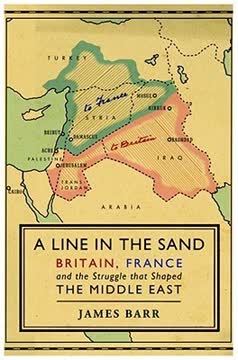


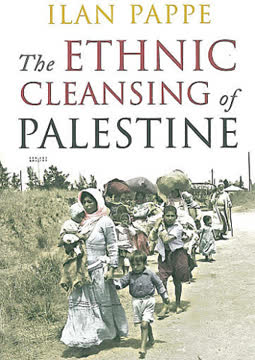
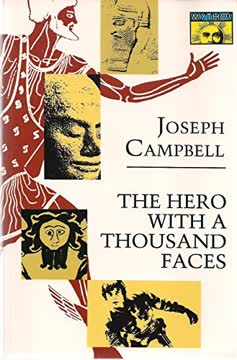
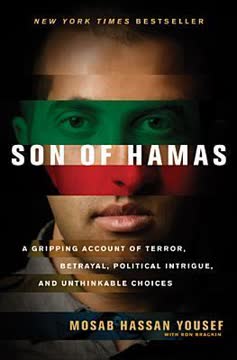
Download PDF
Download EPUB
.epub digital book format is ideal for reading ebooks on phones, tablets, and e-readers.
